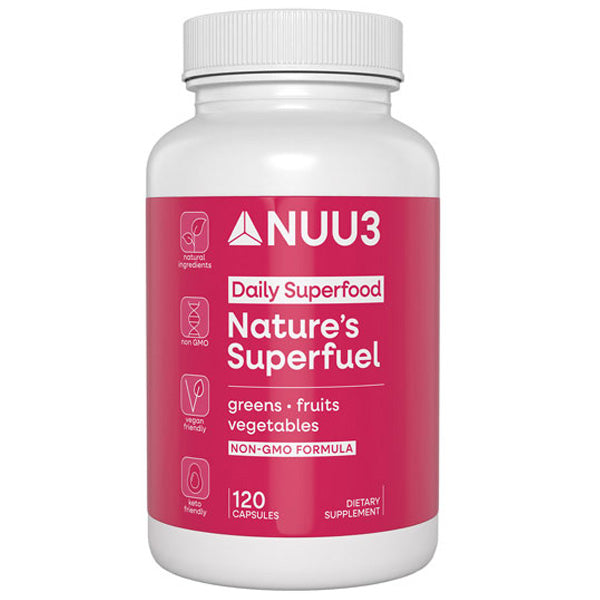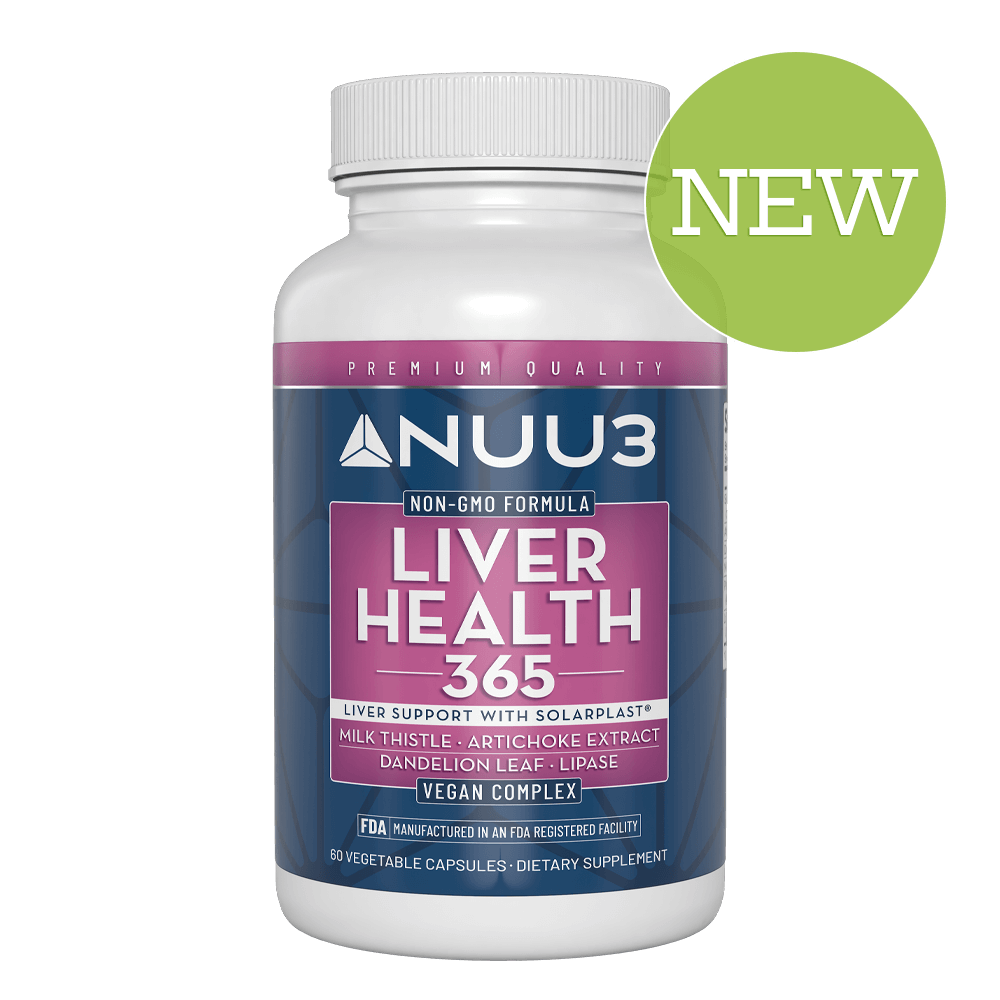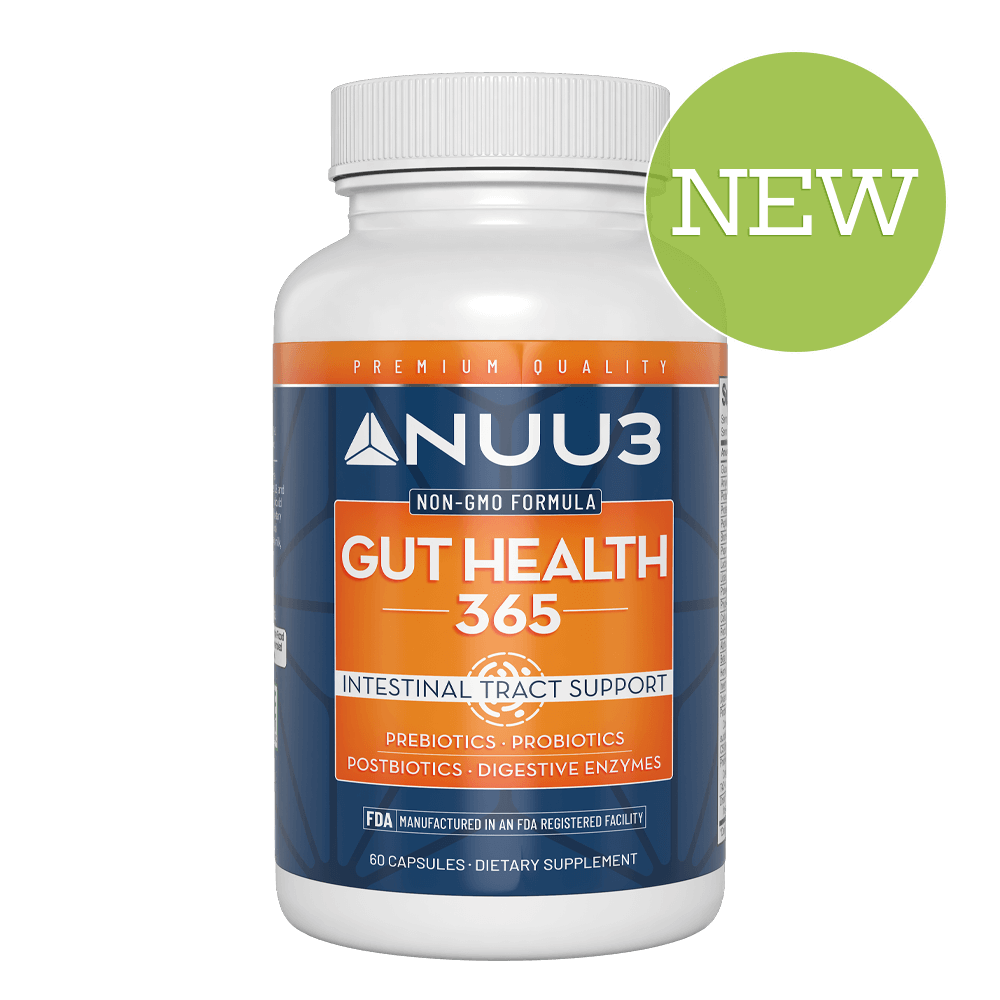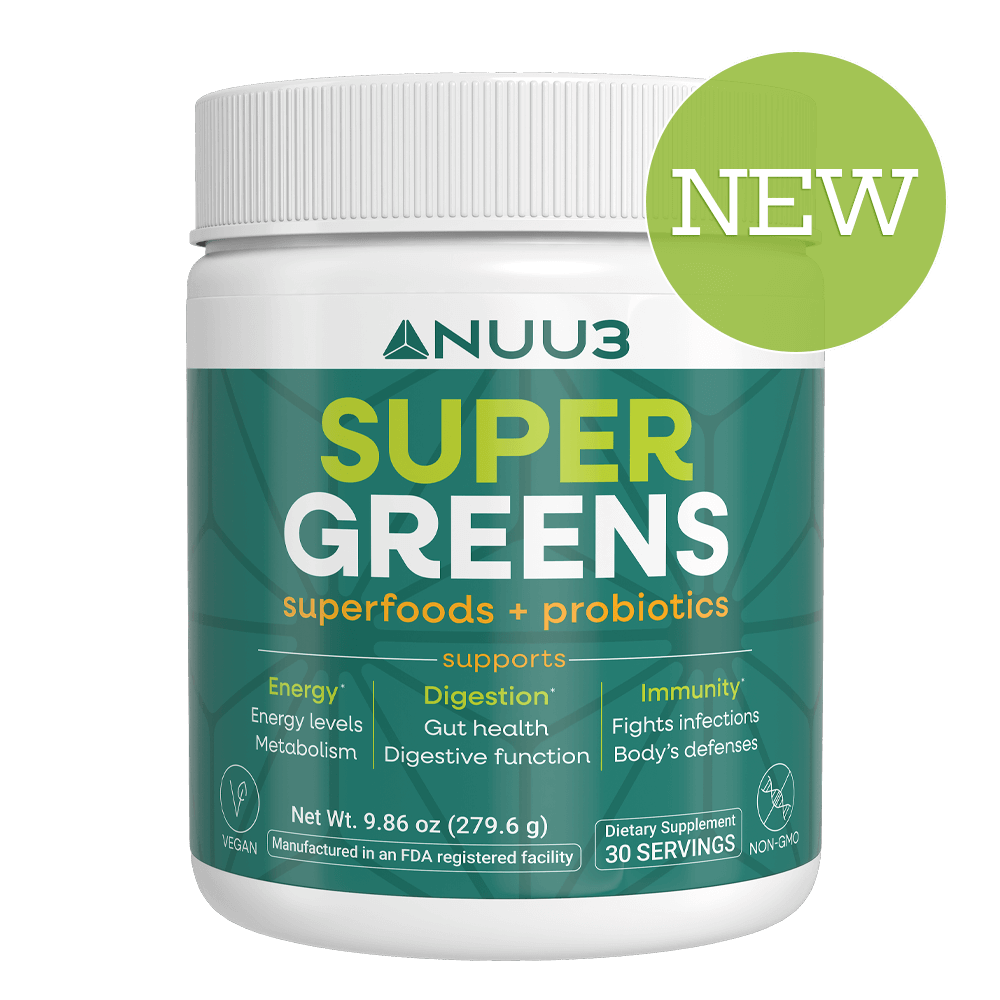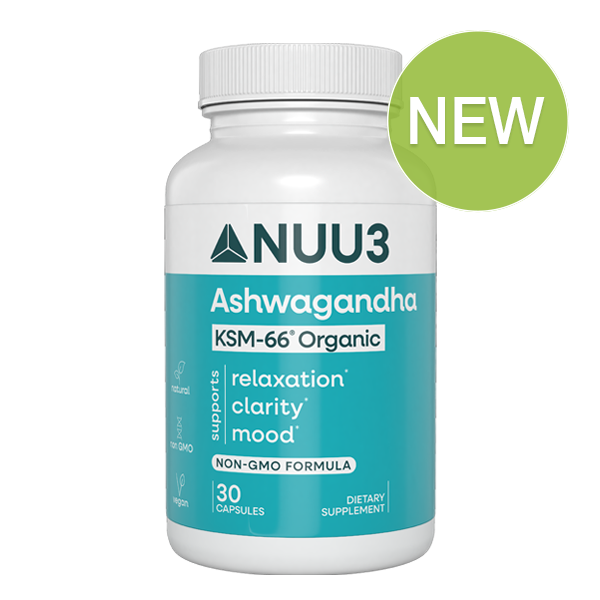Prebiotic vs. Probiotic: What is Best for Your Gut Health

What is the Gut Microbiome?
The gut microbiome [1] refers to the vast community of microorganisms in the digestive tract, including the thousands of bacteria and other microbes. This diverse system is critical for digestion, nutrient absorption, and immune system strength, and it may even influence certain aspects of behavioral and mental health.
A balanced microbiome is important to overall health, and disruptions could increase the risk of developing gastrointestinal diseases [2] like Irritable Bowel Syndrome (IBS), obesity, type 2 diabetes, and some autoimmune disorders.
Some of the research on the gut microbiome [3] has led to a better understanding of its physiological processes as well as advancements in therapeutic approaches to enhance digestive health and functioning. Some of these include modifications in diet, medical interventions, and taking probiotics and prebiotics.
In this article, we’ll discuss the benefits of prebiotics and probiotics for gut health and answer important questions such as how they differ from each other, whether you can take them together, and when to take prebiotics specifically.
Why Are Gut Bacteria Beneficial?
Gut bacteria offer an array of benefits [4], including helping to digest high-fiber complex carbohydrates and synthesizing key vitamins that contribute to nutrient absorption and energy production. These microbes play a pivotal role in strengthening the immune system, enhancing its response to pathogens while reducing inflammation. Additionally, they help maintain the gut barrier, which prevents the invasion of harmful microorganisms.
Gut bacteria also influence brain activity and cognitive function [5], and an imbalance has been linked to a higher risk of developing certain neurodegenerative disorders such as Alzheimer’s and autism. Overall, a balanced gut microbiome should promote a healthy body and mind.
What is the Difference Between Prebiotics and Probiotics?
Probiotics and prebiotics [6] both play a significant role in supporting a healthy gut, but they serve different functions in the digestive system. Probiotics are live microorganisms that live in the digestive tract, and they are typically called “good bacteria”. These beneficial microorganisms can be found in certain foods or in supplements, and they provide a number of health benefits when consumed in adequate amounts. The most common probiotic strains are from the Lactobacillus and Bifidobacterium family.
Probiotics kill harmful gut bacteria to help restore and maintain a balanced gut microbiome, offering benefits like improved digestion, enhanced immune function, more regular bowel movements, and potential mitigation of gastrointestinal disorders and symptoms. Prebiotics are non-digestible dietary fibers and compounds found in various foods. They nourish the gut bacteria, allowing them to thrive and multiply. Prebiotics are not living organisms, but rather the fuel that sustains the growth and activity of probiotic bacteria. By promoting the growth of good bacteria, prebiotics indirectly contribute to a balanced gut microbiome and its associated health benefits.
In summary, probiotics are live microorganisms that are directly ingested to colonize the gut and provide health benefits, while prebiotics are non-digestible fibers that nourish these bacteria in the gut, indirectly fostering their growth and activity. When both are combined they are often referred to as synbiotics, as they have a synergistic effect on gut health.
Different individuals may vary in their response to probiotics and prebiotics, and for this reason, we recommend that you consult with a healthcare professional before making any significant changes to your diet or supplement routine.
What Are Prebiotics?
Prebiotics [7] are types of dietary fiber in some foods that nourish the healthy probiotic microorganisms in the gut. They are insoluble fibers that our digestive system can’t break down on its own, but probiotics thrive by consuming them. Prebiotics are not live microorganisms like probiotic bacteria, however, they play a crucial role in supporting a healthy digestive system.
In general terms, prebiotics are "food" for the good bacteria in your digestive tract. They resist digestion in the upper gastrointestinal tract and reach the colon relatively intact, where they become a substrate for the growth and activity of beneficial bacteria. By providing nourishment, prebiotics help probiotics to proliferate and maintain a balanced gut microbiome.
What are the Benefits of Prebiotics?
As we have said, prebiotics play a key role in promoting a healthy, balanced microbiome. However, they also have other benefits for overall health, including:
- Improving digestion
- Enhancing immune function
- Decreasing inflammation
- Reducing the risk of developing some chronic diseases
- Increasing calcium absorption to improve bone health
- Assisting with weight management
- Balancing blood sugar levels
What Are Foods Rich in Prebiotics?
You can take supplements, but it’s more effective to incorporate prebiotic fiber-rich foods into your daily diet to experience the benefits. There are prebiotics in a variety of vegetables, fruits, and legumes. These are some of the best sources:
- Legumes, beans, and peas
- Oats
- Bananas
- Berries
- Asparagus
- Artichoke
- Garlic
- Leeks
- Onions
What are Probiotics?
Probiotics are live microorganisms, usually bacteria and yeast, that colonize the gut and compete with harmful microorganisms for resources and space. They also assist in breaking down complex carbohydrates and certain vitamins.
Probiotics help maintain a healthy balance of bacteria in the gut which is essential for digestion, nutrient absorption, and inflammatory regulation. In addition, they may reduce the risk of developing certain medical conditions. Some fermented foods like yogurt, kefir, sauerkraut, and kimchi, contain natural probiotics.
It's important to choose a supplement or source that includes the most beneficial strains, like lactobacillus and Bifidobacterium, as not all probiotics are equal in function. In addition, for optimal gut health, try to consume an ideal balance of both prebiotics and probiotics.
What Are the Benefits of Probiotics?
In addition to metabolizing complex carbohydrates and enhancing nutrient absorption, probiotics can offer other benefits[8] for both the gut and the rest of the body. Some of the additional benefits of probiotics include:
- Helping to promote regularity
- Supporting the immune system
- Reducing the symptoms of gastrointestinal conditions
- Improving skin health
- Promoting smoother digestion
- Supporting the gut while using antibiotics
- Improving mental health
- Helping with weight management
- Supporting urinary tract health
What Are Foods Rich in Probiotics?
As with prebiotics, you can take probiotics in supplement form, but they are also in several fermented foods. It is important to ensure that the fermented foods are unpasteurized as the process actually kills the good bacteria. Here are some of the best:
- Sauerkraut
- Kimchi
- Kombucha tea
- Kefir
- Soy products like miso and tempeh
- Unpasteurized pickles and pickled vegetables
What are Common Symptoms of Gut Issues?
Common symptoms [9] of gastrointestinal tract issues include abdominal discomfort, bloating, gas, diarrhea, constipation, and irregular bowel movements. Since the tract also includes the esophagus, you may also experience heartburn, indigestion, and nausea.
Chronic conditions like inflammatory bowel disease, Crohn's, and ulcerative colitis may cause persistent pain, fatigue, weight loss, and changes in appetite. In addition, nutritional intolerances can lead to cramps, gas, and diarrhea if you consume the forbidden foods.
Something that often gets overlooked is that gut microbiome imbalance can have an impact on mood, possibly causing symptoms like anxiety or depression. Gut health problems could also lead to skin conditions, joint pain, and frequent infections.
What is the Importance of Probiotics in Improving Gut Health?
Probiotics play a pivotal role in improving gut health by balancing the gut microbiome. A healthy gut microbiome is essential for a functioning digestive system, nutrient absorption, enhanced immune function, and an array of other benefits. Probiotics help maintain this balance by populating the gut with strains that have a positive effect on the body.
In general, these microorganisms help break down complex carbohydrates, which produce essential nutrients. In addition, they compete with harmful gut bacteria for resources and space within the gastrointestinal tract. This can lead to smoother digestion, a reduction in bloating, and enhanced nutrient absorption, Furthermore, as some of the immune system resides in the gut, probiotics help support its function. A balanced gut microbiome helps the immune system defend against harmful pathogens to help prevent infection.
Probiotics may help in the management of gastrointestinal disorders such as irritable bowel syndrome (IBS) and inflammatory bowel disease (IBD) by alleviating symptoms like diarrhea, abdominal pain, and discomfort caused by infections and antibiotics.
Finally, there is evidence to indicate that there is a connection between gut health and mental well-being, so taking probiotics might indirectly influence mood through the gut-brain axis [10]. Overall, by promoting a healthy gut microbiome, probiotics contribute to improved digestion, immune function, mental health, and overall well-being.
What Are the Signs You Need Probiotics?
If you frequently experience some of the following symptoms, your gut may benefit from taking probiotics:
- Digestive issues like bloating, gas, diarrhea, or constipation
- Skin problems like eczema or acne
- Unexplained fatigue
- Poor mood and overall well-being
- Persistent infections weakened immunity or recurring urinary tract infections
If you have recently taken antibiotics, probiotics can help restore gut balance and health. However, it's critical to consult with a healthcare professional before taking probiotics, as some of the symptoms could also be related to an undiagnosed condition.
When Should You Take Prebiotics?
For optimal benefits, include prebiotic foods in your diet throughout the day to support a healthy gut microbiome. Gradually introducing prebiotic-rich foods to your diet can help minimize potential gastrointestinal discomfort, as some people may experience gas or bloating when consuming large quantities. If you prefer taking prebiotic supplements, make sure you consult a healthcare professional first and follow the recommended dosage.
Are There Side Effects Associated With Taking Prebiotics And Probiotics?
If you consume large amounts of probiotics or prebiotic-rich foods, you may experience mild side effects like bloating or stomach discomfort. With probiotic supplements, there are sometimes mild issues like gas or stomach upset while your gut adjusts to the new bacteria. However, in most cases, these symptoms should subside after a couple of days. Depending on the source of the prebiotics and probiotics, some people may experience headaches.
Allergic reactions may occur, but only due to ingredients added to the supplements, so be sure to check the list carefully to ensure the product is safe for you. In rare cases, people with compromised immune systems may develop an infection from probiotics, and for this reason, it’s essential to consult a physician for approval before taking them. This is especially true if you have an underlying health condition. In addition, as with any new product, each person’s body will react differently so be sure to note any changes and follow up with a doctor if necessary.
Frequently Asked Questions
What is better for you, probiotic or prebiotic?
Probiotics and prebiotics play distinct yet complementary roles in gut health, and neither is "better" than the other. Both have unique benefits, contribute to a balanced gut microbiome, and should be incorporated into your daily routine. Probiotics are live healthy microorganisms that directly introduce good bacteria to your gut. Prebiotics are non-digestible fibers that nourish existing bacteria in your gut, promoting their growth and activity.
For optimal digestion, you should take both probiotics and prebiotics. Consuming a diverse range of prebiotic-rich foods alongside sources of probiotics can help optimize your gut health.
Q: Who should not take prebiotics?
While prebiotics are generally considered safe and beneficial, they aren’t suitable for everyone. People who fall into any of these categories should try to limit their intake:
- Individuals with sensitivities or allergies to certain prebiotics may cause digestive issues like bloating, gas, and discomfort.
- For individuals with gastrointestinal disorders, high-fiber foods can exacerbate symptoms.
- Children and Infants, as their digestive systems, are still young. It's important to introduce prebiotics to kids gradually as part of a balanced diet.
Do I need both prebiotics and probiotics?
Although incorporating both prebiotics and probiotics into your diet can be beneficial, you don't necessarily need to take both. Prebiotics provide nourishment for the good bacteria already present in your gut, creating an environment that allows them to flourish and thrive. Probiotics introduce more good bacteria into your gut, restoring and maintaining a healthy balance. They can be particularly beneficial after antibiotics or when addressing specific gut-related issues.
Adding both prebiotic-rich foods and probiotics to your diet can be a comprehensive approach to supporting your gut health. However, individual needs vary, so it’s important to find the right balance for you personally.
Conclusion
Both probiotics and prebiotics are essential in maintaining a balanced and thriving digestive system. When you include both in your diet, they work symbiotically to optimize gut health. However, individual needs, sensitivities, and goals vary, so the specific balance should be personalized to your body. Whether you want to cultivate a diverse gut microbiome through prebiotics or introduce specific probiotic strains to your gut, the key is to make choices that will support a healthy digestive system.
In addition, taking supplements like Nuu3 Nature's Superfuel and Nuu3 Green Pura daily supports your overall health and well-being as you improve your gut health. They also contain natural ingredients that can help improve your immune system and increase mental clarity. Consult a healthcare professional for advice on how to balance your prebiotic and probiotic intake to meet your individual health objectives.
References
1] ↑https://www.medicalnewstoday.com/articles/307998#importance
2] ↑https://www.ncbi.nlm.nih.gov/pmc/articles/PMC4863046/
3] ↑https://www.ncbi.nlm.nih.gov/pmc/articles/PMC5433529/
4] ↑https://www.ncbi.nlm.nih.gov/pmc/articles/PMC7678755/
5] ↑https://www.ncbi.nlm.nih.gov/pmc/articles/PMC8234057/
6] ↑https://www.healthline.com/nutrition/probiotics-and-prebiotics
7] ↑https://iamherbalifenutrition.com/health-and-wellness/probiotics-prebiotics-difference/
8] ↑https://www.self.com/story/probiotics-vs-prebiotics
9] ↑https://medlineplus.gov/ency/article/007447.htm
10] ↑https://www.ncbi.nlm.nih.gov/pmc/articles/PMC4367209/



